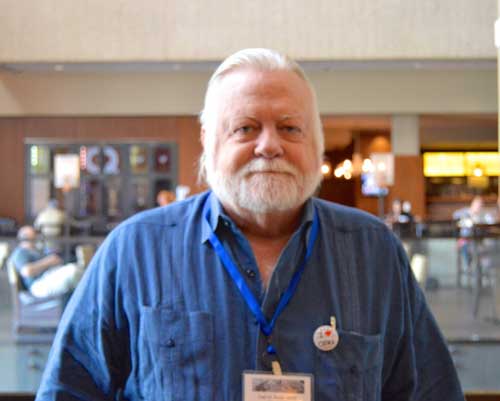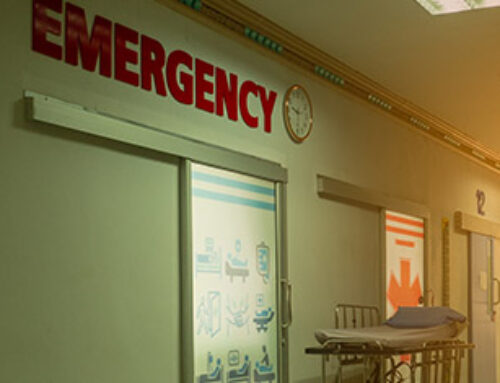Exclusive: An Interview with Community Health Worker Expert Carl Rush
Exclusive: An Interview with Community Health Worker Expert Carl Rush
MHP Salud Community Manager Elaine Ezekiel had the chance to sit down with Carl Rush, MRP, Research Affiliate for the Project on Community Health Worker Policy and Practice, a part of the University of Texas Institute for Health Policy.
As one of the preeminent thought leaders in the CHW field, he shared his opinions about the relevancy of CHWs in the changing health landscape, the need for well-trained supervisors, and his vision for the future of the profession.

Carl Rush, MRP, Research Affiliate for the Project on Community Health Worker Policy and Practice, a part of the University of Texas Institute for Health Policy.
Why are Community Health Workers relevant today?
Well, there are lots of reasons. There are perennial reasons with the U.S. population becoming more diverse, the health care center system getting more complex, the increasing cost of health care, the increasing prevalence of chronic diseases, particularly in the development of health care reform and the triple aim, where healthcare is now expected to be more accountable for actual health outcomes and population health status.
We have great clinical providers, great clinical skills, great pharmaceuticals, great technology and all that—what’s really broken in this system is communication and relationships. You can’t have the kind of accountability and continuity of care and continuity of communication without a different set of skills than what we’ve got now.
Of all the recent changes to the health care landscape, what have you seen as the most exciting development?
I think it is the development of a sense of urgency about community clinical linkages and recognition of the importance of social determinants of health.
How can we maintain the grassroots origin of the CHW profession as these workers become more integrated into the health care team?
I certainly agree that that’s a vital thing to do, because without that, you don’t have CHWs—you have something else. I don’t know what to call them. But even in the health care system, CHWs are really relying more on that connection for their success than any kind of training, and I think we need to constantly remind employers and payers that that’s a priority.I think we need to avoid a situation where we see the workforce as a bunch of potential candidates who can receive training and then go out and look for jobs—that’s not how it works. We need to do a lot more in terms of educating the employers, potential employers and payers about the importance of recruiting people properly and ideally recruiting people who are already experienced CHWs.
It’s important to resist the temptation to say that you can just run existing employees through a CHW training. It’s entirely possible that current members of a hospital staff have that kind of community connection, but it’s a combination of connectedness to the community, credibility with the community and commitment to the community, and they really have got to have all three.
Another ingredient is integrating them into health care organizations, their direct supervisors and others in the organization need to respect the primacy of that commitment. I’m sure they expect a certain amount of accountability in terms of the organization’s goals and the results they’re trying to produce—that’s perfectly understandable—but they have to respect the CHW’s need to maintain relationships in the community, and that means their working style is going to be different from a lot of their other staff. They have to be mature enough as an organization to roll with that, and sometimes means that the supervisor is going to have to be much more of an advocate for his or her CHWs than they might expect to be in their role as supervisor.
What makes for an appropriate CHW supervisor?
I’ve been working for years with my colleagues in Massachusetts on experiential workshops for supervisors, and it seems to be working really well. This is based on several principles: first, that the supervisor’s role is different for three different sets of reasons. One is the way CHWs operate—it’s going to be different from the working style of other clinical staff.
The second is the kinds of people who become good CHWs are going to have some distinctive characteristics and needs, because they come from the communities being served, and so they’re going to have boundary issues between working and social relationships; they’re going to need support for burnout or over-commitment—it’s very important for CHWs to have sense of boundaries, and the ability to tell people that they may know socially, “No, you can’t call me at 2 o’clock in the morning.”
The third major set of issues has to do with the culture of the organization they’re working in, particularly health care organizations, which can be very hierarchical. So the supervisor needs some distinctive skills and of course needs to understand the nature of CHW work very well.
Right now, CHWs are the “flavor of the month,” and everyone says “Oh, let’s get us some CHWs,” and then they don’t know what to do with them. We’ve heard horror stories about CHWs who are chained to their desks—figuratively, not literally—and are spending all their time on the phone or doing filing because they’re not really trained to provide clinical care, so it’s a real set of challenges.
And then there’s the next level where you see CHWs integrated into team-based care, and the organizations really need to do that well because of the power differentials within the organization. Part of what the CHWs accomplish within an organization is teaching the clinical team more about the lives of the people they serve, and that means CHWs need to have the freedom to say “Look, the emperor has no clothes.” They have to be allowed to advocate internally for the needs of the community and make changes to the way a health provider operates and not be stifled in that role. So the supervisor needs to support them and advocate for them.
There are examples of organizations where the CHWs earned a lead role in their health provider team, because when you think about it, if clinicians are willing to set aside their entitlement, CHWs are the team members who really knows the life of the patient better than anybody else, and that’s a tremendous asset to the team who may be limited in that knowledge.
If you could tell a clinical team who has no CHW integrated into their practice one thing that they probably don’t understand about CHWs, what would it be?
I think that the potential of the CHW to help them communicate more clearly in both directions with their patients, not in the sense of interpreting, but to understand when there is culturally-specific communication they need to be aware of, helping certain patients be more candid.
We’ve all heard the example of that patient who nods and says they understand the doctor, when they really don’t. This anecdote is one of the ways we can get through to the clinicians about the effectiveness of CHWs, because they’ve all been there when they suspect that the patients don’t understand what they’re saying.
Particularly in situations where they’re trying to become accredited as a medical home, working with Medicaid patients, another thing that seems to resonate with them is past experience of losing patients, where they can’t find them. So there will often times be a chart, but no patient, because they were lost to follow up. Well, if you’re going to be a medical home, you can’t do that—that’s not acceptable, and so it’s important for them to really think seriously about who or what method is going to be most helpful to maintaining contact with that patient
Where do you see the CHW profession 10 years from now?
I have a nightmare scenario where it’s kind of killed by being “over-medicalized.” I really don’t want to see that happen, where the other clinical professions assert too much pressure to make CHWs more like them.
My positive scenario is that CHWs can be expanded to serve middle class communities, or folks who are already better served, so that there will be roles for CHWs from other backgrounds. I’d like to see more engagement of CHWs who are, let’s say older individuals working with folks who are coping with getting older, regardless of socio-economic or cultural background.
I also see—and we’re already seeing—more entrepreneurial responses from CHW communities. There are already two examples now of worker-owned cooperatives. There’s a very successful one in Canada in Edmonton Alberta, called Multicultural Health Brokers Cooperative. It’s a group of 56 CHWs from all different cultural and ethnic background working heavily with immigrant populations, but everyone in the region contracts with them to get their CHW services. That’s one of the ways that they can preserve or protect this unique community-centric orientation, for providers to contract with CHWs because they bring that value and sense of commitment with them to offset the pressure to conform. So I see that as one of the cornerstones. And I see we could easily have half a million active CHWs in this country.
The other thing I think is vital when we’re talking about protecting the integrity of the profession is that in this ideal future, we would have really worked out understanding the relationship between CHWs who are paid and those that are volunteers, because there’s such a wide spectrum of settings of CHWs who are more like community organizers or grassroots volunteers, and the ideal future would be one in which they are seen as peers of the folks who are paid. There will always be a desire for grassroots activity.
About MHP Salud
MHP Salud has over thirty years of experience implementing CHW programs and training organizations looking to start and/or strengthen their own CHW programs. For more information about MHP Salud, our services, and how we can help you, please email us at info@mhpsalud.org







